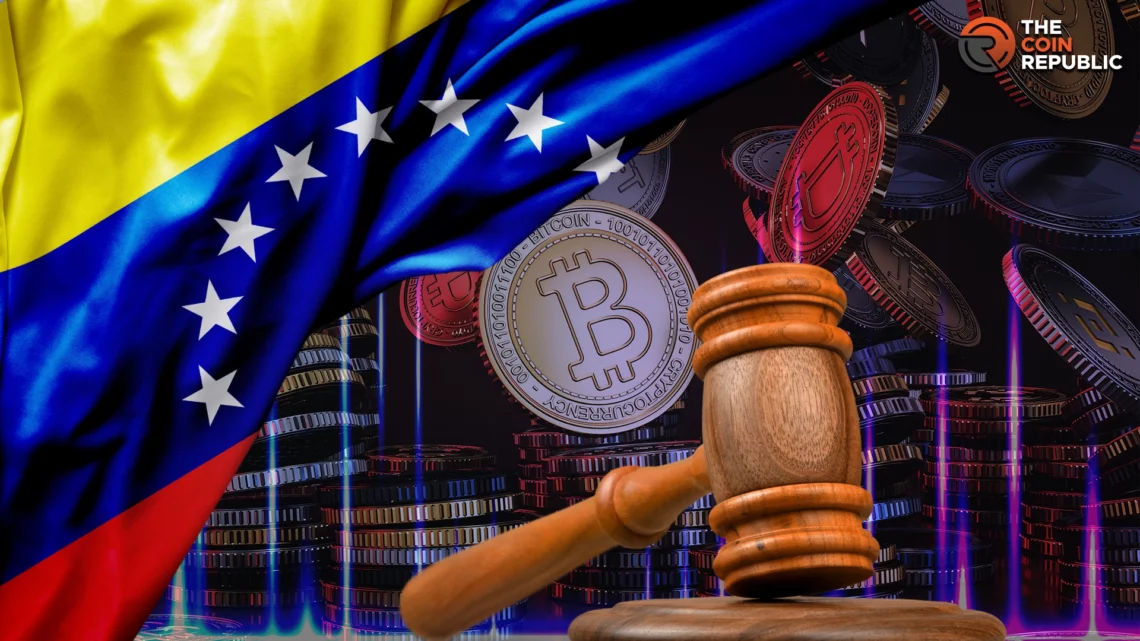The Venezuelan administration, led by President Nicolas Maduro, has allegedly been using virtual currencies like Tether (USDT) to facilitate its oil shipments to get around the devastating U.S. sanctions.
Global financial watchdogs are concerned about this development because they believe it will weaken the impact of economic sanctions and give other autocratic regimes facing comparable penalties more confidence.
PDVSA, Venezuela’s state-owned oil corporation, discreetly increases the cryptocurrency it uses to sell fuel and crude oil. Experts are pleading with democratic governments to address this regulatory gap quickly.
They warn that failure to do so could pave the way for a new era of unchecked financial maneuvering by sanctioned regimes, rendering international economic measures toothless.
The Crypto Lifeline For Sanctioned Regimes
Leopoldo Lopez, a prominent Venezuelan opposition politician, and Kristofer Doucette, a blockchain analysis firm Chainalysis director, have sounded the alarm. They have warned over Maduro’s alleged efforts to “exploit cryptocurrency to move illicit proceeds into the international financial system.” In a jointly authored report released Monday, the duo detailed a series of financial transactions since Maduro’s inauguration, calling for a concerted global effort to counter this burgeoning threat.
“Other autocratic leaders under international sanctions, like those in Iran and Russia, have launched their crypto programs,” the report stated. “These programs, the report alleges, are a way to dodge financial systems reliant on US dollars or Euros, currencies vulnerable to sanctions.”
The report’s findings follow the Biden administration’s decision not to renew a license that had previously eased restrictions on Venezuela’s oil industry.
This move effectively reimposed sanctions on the sector, prompting PDVSA to accelerate its use of digital currencies like Tether as a workaround.
A Global Call To Action
In their report, Lopez and Doucette warned Western governments, particularly the United States, urging decisive action to preserve sanctions’ effectiveness by closing the cryptocurrency loophole exploited by autocratic regimes. The report emphasized that institutions must establish robust safeguards to prevent regimes from moving, laundering, or hiding assets within the global financial system.
The authors stressed the importance of a collaborative, multinational effort to address this emerging threat. They called on financial institutions, cryptocurrency exchanges, and new digital asset platforms to collaborate to combat the issue.
By rallying these key players and fostering cooperation, democratic governments can block sanctioned regimes’ access to the growing cryptocurrency ecosystem.
Dealing With The Regulatory Maze
Regulators worldwide face a difficult challenge as sanctioned regimes increasingly use digital currency. Finding a balance between promoting innovation and maintaining financial integrity is challenging.
Opponents worry that unduly stringent laws may stunt the development of cryptocurrencies and reduce their capacity for innovation and beneficial disruption. However, insufficient regulations and enforcement protocols could allow malicious individuals to take advantage of this technology.
It takes careful cooperation between legislators, business executives, and civil society organizations to strike the correct balance. Working together can create a robust, flexible regulatory framework. It guarantees that virtual currencies’ advantages are optimized while lowering the possibility of abuse by sanctioned governments and other evil organizations.
Conclusion
As Venezuela’s government embraces digital currencies to bypass sanctions, it sets a dangerous precedent for other authoritarian regimes. This situation demands decisive action to close regulatory gaps enabling such behavior; otherwise,e sanctions meant to curb rogue states’ excesses may lose effectiveness.
It will take international cooperation to address this situation. It is critical to set precise rules and provide stakeholders with the tools they need to stop financial misconduct.
Democratic governments must ensure that the possibility of abuse doesn’t outweigh the advantages of digital currency.
A coordinated, cooperative effort is required to preserve the integrity of the international financial system and respect the values of accountability and openness. This is essential to keep economic sanctions in place and stop despotic governments from manipulating them.
Anurag is working as a fundamental writer for The Coin Republic since 2021. He likes to exercise his curious muscles and research deep into a topic. Though he covers various aspects of the crypto industry, he is quite passionate about the Web3, NFTs, Gaming, and Metaverse, and envisions them as the future of the (digital) economy. A reader & writer at heart, he calls himself an “average guitar player” and a fun footballer.


 Home
Home News
News









